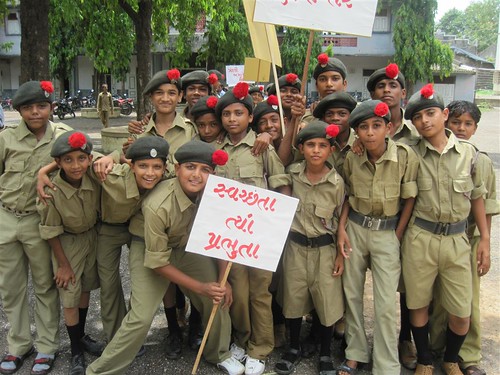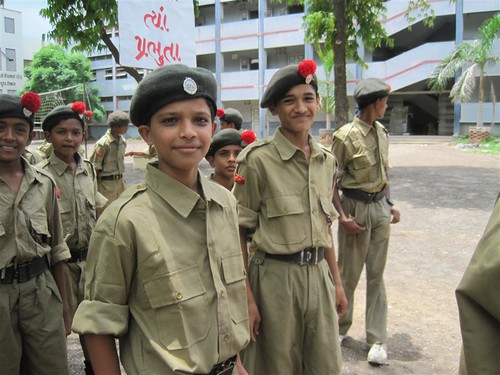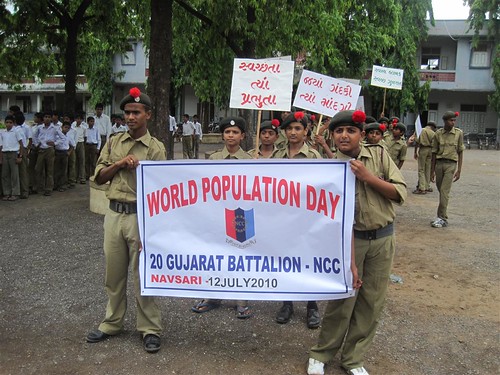
My first guess didn't turn out to be right. It wasn't a draft. One of the teachers that was helping organize the students explained to me that the governor of Gujarat declared 2010-11 as the Year of Education. One of the initiatives associated with this declaration was sending military personnel to schools across the state in order to lead rallies of students through their local cities, villages, and towns. With banners and sign posts in hand, the students were practicing chants that, interestingly, were mostly do with family sizes. When families have too many children, resources become too thinned, and parents resort to taking their children out of school early in order for them to work in their family business or on a farm.
I snapped a few pictures and was ready to head back to finish my chai (the heat was starting to bear down on me without protection from the glaring sun). All of a sudden, Principal Mahida put his hand on my shoulder and asked if I wanted to join the students on their rally through Kadod. Some of the students that I teach got really excited and started yelling "Sir, yes! Sir, yes!" making room for me in the line. How could I say no?
To be honest though, I was so grateful that I was able to join the students in their rally. Walking alongside the same students that I teach, trying my best to follow their chants, I think I might have come a few steps closer to understanding why I'm here beyond just getting students through another year of English class. The students were taught yesterday that education is something completely worth screaming about and hopefully getting heard in the process. I was glad I was there to show them that I believe the same thing.
Seeing the smiling, entertained faces of onlookers throughout the town, I got this sense that people do understand the value and importance of education. I have to confess that I was quick to blame poorer families for neglecting a child's education just because it's assumed that they're going to be working just as their parents, and their parents' parents, did. Most of us grew up not having to worry about having a next meal or not, and we were taught that the worst possible thing is to stifle someone of opportunity. What if a family's decision to stop their child's schooling is not even choice, but a necessity? I found more food for thought to digest.
Here are more pictures and a video from the rally! Hope you enjoy them!
Eric














